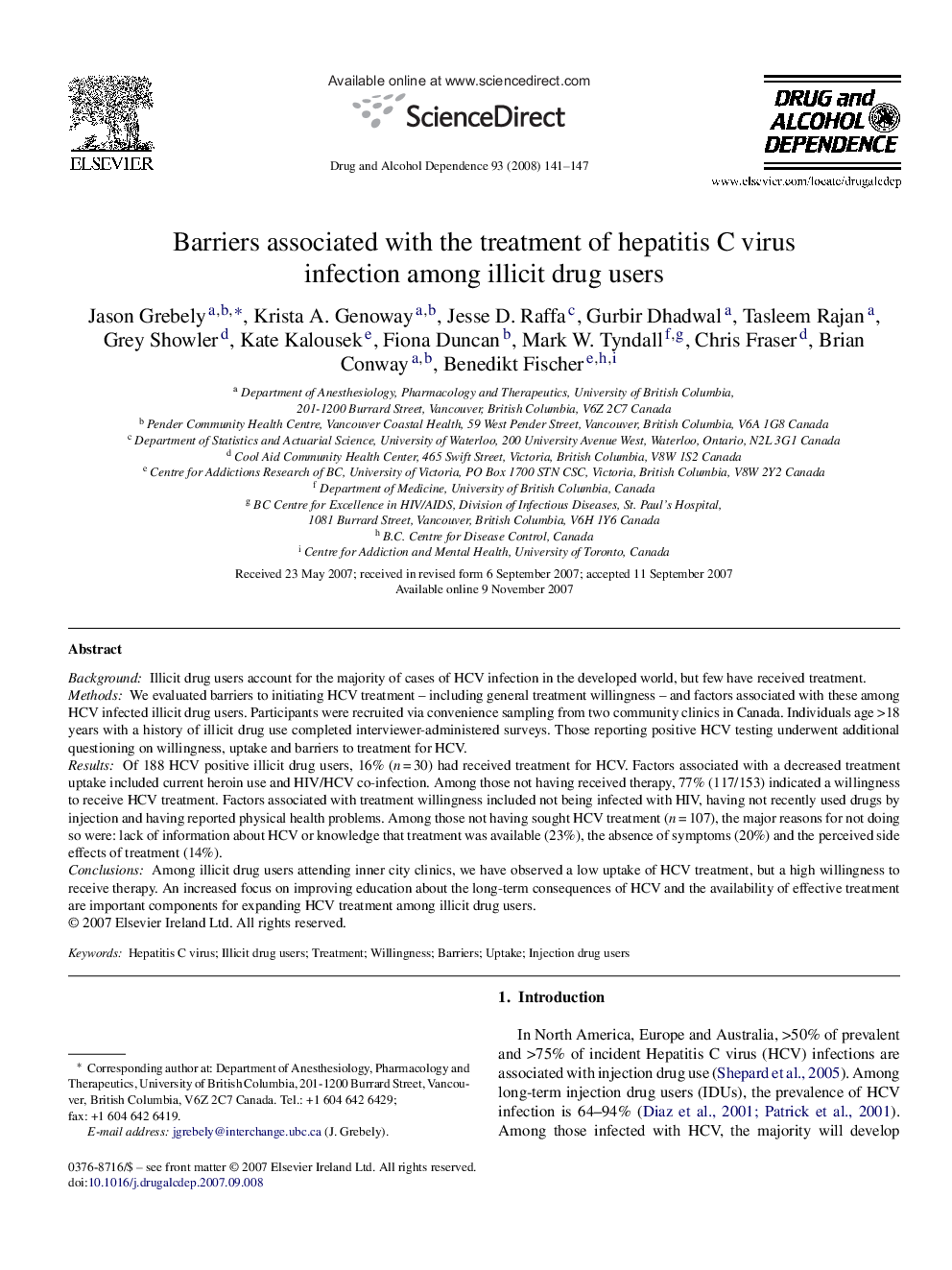| Article ID | Journal | Published Year | Pages | File Type |
|---|---|---|---|---|
| 1071594 | Drug and Alcohol Dependence | 2008 | 7 Pages |
BackgroundIllicit drug users account for the majority of cases of HCV infection in the developed world, but few have received treatment.MethodsWe evaluated barriers to initiating HCV treatment – including general treatment willingness – and factors associated with these among HCV infected illicit drug users. Participants were recruited via convenience sampling from two community clinics in Canada. Individuals age >18 years with a history of illicit drug use completed interviewer-administered surveys. Those reporting positive HCV testing underwent additional questioning on willingness, uptake and barriers to treatment for HCV.ResultsOf 188 HCV positive illicit drug users, 16% (n = 30) had received treatment for HCV. Factors associated with a decreased treatment uptake included current heroin use and HIV/HCV co-infection. Among those not having received therapy, 77% (117/153) indicated a willingness to receive HCV treatment. Factors associated with treatment willingness included not being infected with HIV, having not recently used drugs by injection and having reported physical health problems. Among those not having sought HCV treatment (n = 107), the major reasons for not doing so were: lack of information about HCV or knowledge that treatment was available (23%), the absence of symptoms (20%) and the perceived side effects of treatment (14%).ConclusionsAmong illicit drug users attending inner city clinics, we have observed a low uptake of HCV treatment, but a high willingness to receive therapy. An increased focus on improving education about the long-term consequences of HCV and the availability of effective treatment are important components for expanding HCV treatment among illicit drug users.
